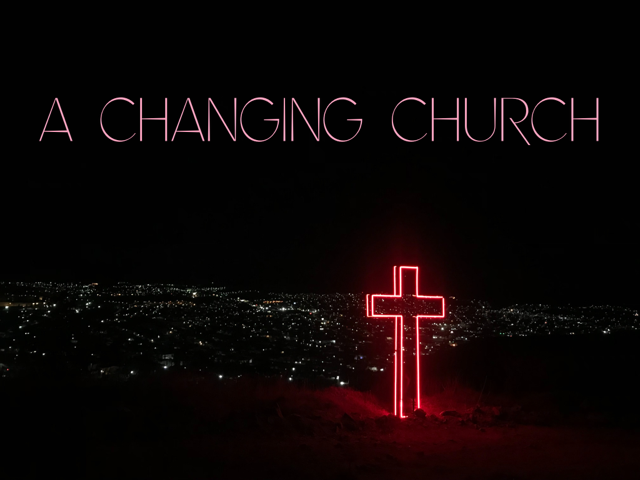When discussing topics like this, I always state up front that there are some things about ministry and church that must never change. The sacred things such as our doctrine which is based upon the unchanging Word of God is untouchable. But the things which have been added to ministry which aren’t necessarily sacred are subject to change.
This change comes very hard for some folks. Author and speaker Tod Bolsinger explains that change is difficult because people are afraid of loss. Change in church means a change in traditions, customs, and things about which we feel nostalgic. When music, décor, facilities, and furniture styles change, people grieve the loss. They remember how things were in the past, good times and fond memories. When people grow up in the church, it can be akin to grandma’s house – the sight and sounds and smell create a sense of comfort and familiarity. Leaders of change must understand that resistance to change really isn’t a matter of people being obstinate, it is more a matter of grieving loss.
Consider this. In the Old Testament book of Ezra, when the new temple was ready for use: “…many of the priests and Levites and chief of the fathers who were elderly men who had seen the first house, when the foundation of this house was laid before their eyes, wept with a loud voice; and many shouted aloud for joy.” While some rejoiced, others cried. These elders were crying, not because they didn’t like the new temple, but because they had lost the old temple. Change is hard for those who value the past. But change is embraced by those who value the future.
I’ve recently been reminded that much of the way we “do church” is relatively new. By that I mean, very few of our worship methods and customs are ancient. Our style of music is relatively new, as compared to the ancientness of Scripture. Even most of the good old songs aren’t very old if compared to the Bible. In our tradition, most of our “old time” music is less than 100 years old.
If you are a church member or leader and you find yourself grieving the loss of treasured things, it may help if you recall:
- Change is inevitable. Years ago, people introduced new concepts and practices that we now consider as staples. At one time, someone introduced new songs (now honored hymns), new church buildings (now old and worn out), and new approaches to ministry (now old fashioned traditions). There has always been change, and that will never change.
- Change is necessary in order to reach new people. People who have not been in the church for years have no idea why we do some things the way we do them. To us, it is familiar. To them, it is foreign. There are only a few Christian folks who are brazen enough to say that they do not want to reach new people. Unfortunately, there are many who want to reach the lost, but only if it requires no change on their part.
- The changes and loss we are grieving aren’t eternal. Pews aren’t supernatural, they are just furniture. Painting over an old baptistery mural isn’t sacrilege. A Pastor preaching in a suit is a relatively new concept. Less than 100 years ago, this was unheard of in many circles. Keep this perspective in mind: the things that really matter last forever, everything else is temporary.
- Bolsinger reminds us that the root word for “familiar” and “family” are the same. We resist change of familiar things because we feel like we are losing family. But hear this: traditions are not family. People are family, furniture and schedules and decorations are not. Let’s not try to make temporary things eternal.
If the experts know what they are talking about, we ain’t seen nothin’ yet. Traditional buildings are going away. Technology will play an even bigger role in ministry. Things that we accept as vital to today’s church may, “go the way of all the earth” (die). But the Church and ministry will continue on, perhaps in a different form, until the day of Jesus Christ.
Once again, we should never entertain changing anything that is eternal. But if adjusting our approach to church increases our chance of reaching a lost world, who among us would say we are against it?

